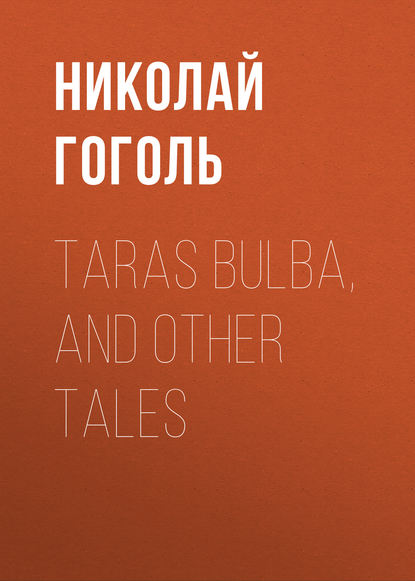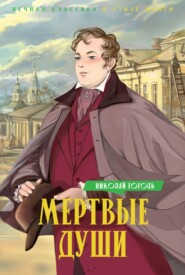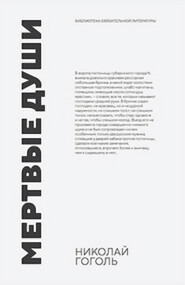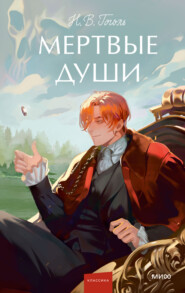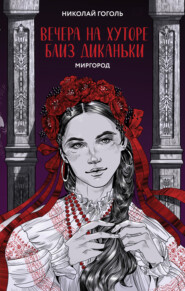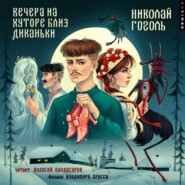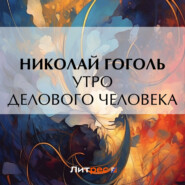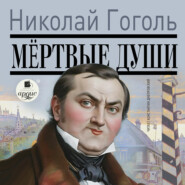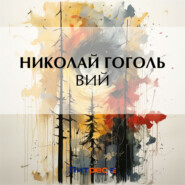По всем вопросам обращайтесь на: info@litportal.ru
(©) 2003-2025.
✖
Taras Bulba, and Other Tales
Год написания книги
2018
Настройки чтения
Размер шрифта
Высота строк
Поля
“Wait a bit, we’ll singe your top-knots for you!” was the reply.
“I should like to see them singe our scalp locks!” said Popovitch, prancing about before them on his horse; and then, glancing at his comrades, he added, “Well, perhaps the Lyakhs speak the truth: if that fat-bellied fellow leads them, they will all find a good shelter.”
“Why do you think they will find a good shelter?” asked the Cossacks, knowing that Popovitch was probably preparing some repartee.
“Because the whole army will hide behind him; and the devil himself couldn’t help you to reach any one with your spear through that belly of his!”
The Cossacks laughed, some of them shaking their heads and saying, “What a fellow Popovitch is for a joke! but now—” But the Cossacks had not time to explain what they meant by that “now.”
“Fall back, fall back quickly from the wall!” shouted the Koschevoi, seeing that the Lyakhs could not endure these biting words, and that the colonel was waving his hand.
The Cossacks had hardly retreated from the wall before the grape-shot rained down. On the ramparts all was excitement, and the grey-haired Waiwode himself appeared on horseback. The gates opened and the garrison sallied forth. In the van came hussars in orderly ranks, behind them the horsemen in armour, and then the heroes in brazen helmets; after whom rode singly the highest nobility, each man accoutred as he pleased. These haughty nobles would not mingle in the ranks with others, and such of them as had no commands rode apart with their own immediate following. Next came some more companies, and after these the cornet, then more files of men, and the stout colonel; and in the rear of the whole force the little colonel.
“Keep them from forming in line!” shouted the Koschevoi; “let all the kurens attack them at once! Block the other gate! Titarevsky kuren, fall on one flank! Dyadovsky kuren, charge on the other! Attack them in the rear, Kukubenko and Palivod! Check them, break them!” The Cossacks attacked on all sides, throwing the Lyakhs into confusion and getting confused themselves. They did not even give the foe time to fire, it came to swords and spears at once. All fought hand to hand, and each man had an opportunity to distinguish himself.
Demid Popovitch speared three soldiers, and struck two of the highest nobles from their saddles, saying, “Good horses! I have long wanted just such horses.” And he drove the horses far afield, shouting to the Cossacks standing about to catch them. Then he rushed again into the fray, fell upon the dismounted nobles, slew one, and throwing his lasso round the neck of the other, tied him to his saddle and dragged him over the plain, after having taken from him his sword from its rich hilt and removed from his girdle a whole bag of ducats.
Kobita, a good Cossack, though still very young, attacked one of the bravest men in the Polish army, and they fought long together. They grappled, and the Cossack mastering his foe, and throwing him down, stabbed him in the breast with his sharp Turkish knife. But he did not look out for himself, and a bullet struck him on the temple. The man who struck him down was the most distinguished of the nobles, the handsomest scion of an ancient and princely race. Like a stately poplar, he bestrode his dun-coloured steed, and many heroic deeds did he perform. He cut two Cossacks in twain. Fedor Korzh, the brave Cossack, he overthrew together with his horse, shooting the steed and picking off the rider with his spear. Many heads and hands did he hew off; and slew Kobita by sending a bullet through his temple.
“There’s a man I should like to measure strength with!” shouted Kukubenko, the hetman of the Nezamaikovsky kuren. Spurring his horse, he dashed straight at the Pole’s back, shouting loudly, so that all who stood near shuddered at the unearthly yell. The boyard tried to wheel his horse suddenly and face him, but his horse would not obey him; scared by the terrible cry, it bounded aside, and the Lyakh received Kukubenko’s fire. The ball struck him in the shoulder-blade, and he rolled from his saddle. Even then he did not surrender and strove to deal his enemy a blow, but his hand was weak. Kukubenko, taking his heavy sword in both hands, thrust it through his mouth. The sword, breaking out two teeth, cut the tongue in twain, pierced the windpipe, and penetrated deep into the earth, nailing him to the ground. His noble blood, red as viburnum berries beside the river, welled forth in a stream staining his yellow, gold-embroidered caftan. But Kukubenko had already left him, and was forcing his way, with his Nezamaikovsky kuren, towards another group.
“He has left untouched rich plunder,” said Borodaty, hetman of the Oumansky kuren, leaving his men and going to the place where the nobleman killed by Kukubenko lay. “I have killed seven nobles with my own hand, but such spoil I never beheld on any one.” Prompted by greed, Borodaty bent down to strip off the rich armour, and had already secured the Turkish knife set with precious stones, and taken from the foe’s belt a purse of ducats, and from his breast a silver case containing a maiden’s curl, cherished tenderly as a love-token. But he heeded not how the red-faced cornet, whom he had already once hurled from the saddle and given a good blow as a remembrance, flew upon him from behind. The cornet swung his arm with all his might, and brought his sword down upon Borodaty’s bent neck. Greed led to no good: the head rolled off, and the body fell headless, sprinkling the earth with blood far and wide; whilst the Cossack soul ascended, indignant and surprised at having so soon quitted so stout a frame. The cornet had not succeeded in seizing the hetman’s head by its scalp-lock, and fastening it to his saddle, before an avenger had arrived.
As a hawk floating in the sky, sweeping in great circles with his mighty wings, suddenly remains poised in air, in one spot, and thence darts down like an arrow upon the shrieking quail, so Taras’s son Ostap darted suddenly upon the cornet and flung a rope about his neck with one cast. The cornet’s red face became a still deeper purple as the cruel noose compressed his throat, and he tried to use his pistol; but his convulsively quivering hand could not aim straight, and the bullet flew wild across the plain. Ostap immediately unfastened a silken cord which the cornet carried at his saddle bow to bind prisoners, and having with it bound him hand and foot, attached the cord to his saddle and dragged him across the field, calling on all the Cossacks of the Oumansky kuren to come and render the last honours to their hetman.
When the Oumantzi heard that the hetman of their kuren, Borodaty, was no longer among the living, they deserted the field of battle, rushed to secure his body, and consulted at once as to whom they should select as their leader. At length they said, “But why consult? It is impossible to find a better leader than Bulba’s son, Ostap; he is younger than all the rest of us, it is true; but his judgment is equal to that of the eldest.”
Ostap, taking off his cap, thanked his comrades for the honour, and did not decline it on the ground of youth or inexperience, knowing that war time is no fitting season for that; but instantly ordered them straight to the fray, and soon showed them that not in vain had they chosen him as hetman. The Lyakhs felt that the matter was growing too hot for them, and retreated across the plain in order to form again at its other end. But the little colonel signalled to the reserve of four hundred, stationed at the gate, and these rained shot upon the Cossacks. To little purpose, however, their shot only taking effect on the Cossack oxen, which were gazing wildly upon the battle. The frightened oxen, bellowing with fear, dashed into the camp, breaking the line of waggons and trampling on many. But Taras, emerging from ambush at the moment with his troops, headed off the infuriated cattle, which, startled by his yell, swooped down upon the Polish troops, overthrew the cavalry, and crushed and dispersed them all.
“Thank you, oxen!” cried the Zaporozhtzi; “you served us on the march, and now you serve us in war.” And they attacked the foe with fresh vigour killing many of the enemy. Several distinguished themselves—Metelitza and Schilo, both of the Pisarenki, Vovtuzenko, and many others. The Lyakhs seeing that matters were going badly for them flung away their banners and shouted for the city gates to be opened. With a screeching sound the iron-bound gates swung open and received the weary and dust-covered riders, flocking like sheep into a fold. Many of the Zaporozhtzi would have pursued them, but Ostap stopped his Oumantzi, saying, “Farther, farther from the walls, brother gentles! it is not well to approach them too closely.” He spoke truly; for from the ramparts the foe rained and poured down everything which came to hand, and many were struck. At that moment the Koschevoi came up and congratulated him, saying, “Here is the new hetman leading the army like an old one!” Old Bulba glanced round to see the new hetman, and beheld Ostap sitting on his horse at the head of the Oumantzi, his cap on one side and the hetman’s staff in his hand. “Who ever saw the like!” he exclaimed; and the old man rejoiced, and began to thank all the Oumantzi for the honour they had conferred upon his son.
The Cossacks retired, preparing to go into camp; but the Lyakhs showed themselves again on the city ramparts with tattered mantles. Many rich caftans were spotted with blood, and dust covered the brazen helmets.
“Have you bound us?” cried the Zaporozhtzi to them from below.
“We will do so!” shouted the big colonel from above, showing them a rope. The weary, dust-covered warriors ceased not to threaten, nor the most zealous on both sides to exchange fierce remarks.
At length all dispersed. Some, weary with battle, stretched themselves out to rest; others sprinkled their wounds with earth, and bound them with kerchiefs and rich stuffs captured from the enemy. Others, who were fresher, began to inspect the corpses and to pay them the last honours. They dug graves with swords and spears, brought earth in their caps and the skirts of their garments, laid the Cossacks’ bodies out decently, and covered them up in order that the ravens and eagles might not claw out their eyes. But binding the bodies of the Lyakhs, as they came to hand, to the tails of horses, they let these loose on the plain, pursuing them and beating them for some time. The infuriated horses flew over hill and hollow, through ditch and brook, dragging the bodies of the Poles, all covered with blood and dust, along the ground.
All the kurens sat down in circles in the evening, and talked for a long time of their deeds, and of the achievements which had fallen to the share of each, for repetition by strangers and posterity. It was long before they lay down to sleep; and longer still before old Taras, meditating what it might signify that Andrii was not among the foe, lay down. Had the Judas been ashamed to come forth against his own countrymen? or had the Jew been deceiving him, and had he simply gone into the city against his will? But then he recollected that there were no bounds to a woman’s influence upon Andrii’s heart; he felt ashamed, and swore a mighty oath to himself against the fair Pole who had bewitched his son. And he would have kept his oath. He would not have looked at her beauty; he would have dragged her forth by her thick and splendid hair; he would have trailed her after him over all the plain, among all the Cossacks. Her beautiful shoulders and bosom, white as fresh-fallen snow upon the mountain-tops, would have been crushed to earth and covered with blood and dust. Her lovely body would have been torn to pieces. But Taras, who did not foresee what God prepares for man on the morrow, began to grow drowsy, and finally fell asleep. The Cossacks still talked among themselves; and the sober sentinel stood all night long beside the fire without blinking and keeping a good look out on all sides.
CHAPTER VIII
The sun had not ascended midway in the heavens when all the army assembled in a group. News had come from the Setch that during the Cossacks’ absence the Tatars had plundered it completely, unearthed the treasures which were kept concealed in the ground, killed or carried into captivity all who had remained behind, and straightway set out, with all the flocks and droves of horses they had collected, for Perekop. One Cossack only, Maksin Galodukha, had broken loose from the Tatars’ hands, stabbed the Mirza, seized his bag of sequins, and on a Tatar horse, in Tatar garments, had fled from his pursuers for two nights and a day and a half, ridden his horse to death, obtained another, killed that one too, and arrived at the Zaporozhian camp upon a third, having learned upon the road that the Zaporozhtzi were before Dubno. He could only manage to tell them that this misfortune had taken place; but as to how it happened—whether the remaining Zaporozhtzi had been carousing after Cossack fashion, and had been carried drunk into captivity, and how the Tatars were aware of the spot where the treasures of the army were concealed—he was too exhausted to say. Extremely fatigued, his body swollen, and his face scorched and weatherbeaten, he had fallen down, and a deep sleep had overpowered him.
In such cases it was customary for the Cossacks to pursue the robbers at once, endeavouring to overtake them on the road; for, let the prisoners once be got to the bazaars of Asia Minor, Smyrna, or the island of Crete, and God knows in what places the tufted heads of Zaporozhtzi might not be seen. This was the occasion of the Cossacks’ assembling. They all stood to a man with their caps on; for they had not met to listen to the commands of their hetman, but to take counsel together as equals among equals. “Let the old men first advise,” was shouted to the crowd. “Let the Koschevoi give his opinion,” cried others.
The Koschevoi, taking off his cap and speaking not as commander, but as a comrade among comrades, thanked all the Cossacks for the honour, and said, “There are among us many experienced men and much wisdom; but since you have thought me worthy, my counsel is not to lose time in pursuing the Tatars, for you know yourselves what the Tatar is. He will not pause with his stolen booty to await our coming, but will vanish in a twinkling, so that you can find no trace of him. Therefore my advice is to go. We have had good sport here. The Lyakhs now know what Cossacks are. We have avenged our faith to the extent of our ability; there is not much to satisfy greed in the famished city, and so my advice is to go.”
“To go,” rang heavily through the Zaporozhian kurens. But such words did not suit Taras Bulba at all; and he brought his frowning, iron-grey brows still lower down over his eyes, brows like bushes growing on dark mountain heights, whose crowns are suddenly covered with sharp northern frost.
“No, Koschevoi, your counsel is not good,” said he. “You cannot say that. You have evidently forgotten that those of our men captured by the Lyakhs will remain prisoners. You evidently wish that we should not heed the first holy law of comradeship; that we should leave our brethren to be flayed alive, or carried about through the towns and villages after their Cossack bodies have been quartered, as was done with the hetman and the bravest Russian warriors in the Ukraine. Have the enemy not desecrated the holy things sufficiently without that? What are we? I ask you all what sort of a Cossack is he who would desert his comrade in misfortune, and let him perish like a dog in a foreign land? If it has come to such a pass that no one has any confidence in Cossack honour, permitting men to spit upon his grey moustache, and upbraid him with offensive words, then let no one blame me; I will remain here alone.”
All the Zaporozhtzi who were there wavered.
“And have you forgotten, brave comrades,” said the Koschevoi, “that the Tatars also have comrades of ours in their hands; that if we do not rescue them now their lives will be sacrificed in eternal imprisonment among the infidels, which is worse than the most cruel death? Have you forgotten that they now hold all our treasure, won by Christian blood?”
The Cossacks reflected, not knowing what to say. None of them wished to deserve ill repute. Then there stepped out in front of them the oldest in years of all the Zaporozhian army, Kasyan Bovdug. He was respected by all the Cossacks. Twice had he been chosen Koschevoi, and had also been a stout warrior; but he had long been old, and had ceased to go upon raids. Neither did the old man like to give advice to any one; but loved to lie upon his side in the circle of Cossacks, listening to tales of every occurrence on the Cossack marches. He never joined in the conversation, but only listened, and pressed the ashes with his finger in his short pipe, which never left his mouth; and would sit so long with his eyes half open, that the Cossacks never knew whether he were asleep or still listening. He always stayed at home during their raids, but this time the old man had joined the army. He had waved his hand in Cossack fashion, and said, “Wherever you go, I am going too; perhaps I may be of some service to the Cossack nation.” All the Cossacks became silent when he now stepped forward before the assembly, for it was long since any speech from him had been heard. Every one wanted to know what Bovdug had to say.
“It is my turn to speak a word, brother gentles,” he began: “listen, my children, to an old man. The Koschevoi spoke well as the head of the Cossack army; being bound to protect it, and in respect to the treasures of the army he could say nothing wiser. That is so! Let that be my first remark; but now listen to my second. And this is my second remark: Taras spoke even more truly. God grant him many years, and that such leaders may be plentiful in the Ukraine! A Cossack’s first duty and honour is to guard comradeship. Never in all my life, brother gentles, have I heard of any Cossack deserting or betraying any of his comrades. Both those made captive at the Setch and these taken here are our comrades. Whether they be few or many, it makes no difference; all are our comrades, and all are dear to us. So this is my speech: Let those to whom the prisoners captured by the Tatars are dear set out after the Tatars; and let those to whom the captives of the Poles are dear, and who do not care to desert a righteous cause, stay behind. The Koschevoi, in accordance with his duty, will accompany one half in pursuit of the Tatars, and the other half can choose a hetman to lead them. But if you will heed the words of an old man, there is no man fitter to be the commanding hetman than Taras Bulba. Not one of us is his equal in heroism.”
Thus spoke Bovdug, and paused; and all the Cossacks rejoiced that the old man had in this manner brought them to an agreement. All flung up their caps and shouted, “Thanks, father! He kept silence for a long, long time, but he has spoken at last. Not in vain did he say, when we prepared for this expedition, that he might be useful to the Cossack nation: even so it has come to pass!”
“Well, are you agreed upon anything?” asked the Koschevoi.
“We are all agreed!” cried the Cossacks.
“Then the council is at an end?”
“At an end!” cried the Cossacks.
“Then listen to the military command, children,” said the Koschevoi, stepping forward, and putting on his cap; whilst all the Cossacks took off theirs, and stood with uncovered heads, and with eyes fixed upon the earth, as was always the custom among them when the leader prepared to speak. “Now divide yourselves, brother gentles! Let those who wish to go stand on the right, and those who wish to stay, on the left. Where the majority of a kuren goes there its officers are to go: if the minority of a kuren goes over, it must be added to another kuren.”
Then they began to take up their positions, some to the right and some to the left. Whither the majority of a kuren went thither the hetman went also; and the minority attached itself to another kuren. It came out pretty even on both sides. Those who wished to remain were nearly the whole of the Nezamaikovsky kuren, the entire Oumansky kuren, the entire Kanevsky kuren, and the larger half of the Popovitchsky, the Timoschevsky and the Steblikivsky kurens. All the rest preferred to go in pursuit of the Tatars. On both sides there were many stout and brave Cossacks. Among those who decided to follow the Tatars were Tcherevaty, and those good old Cossacks Pokotipole, Lemisch, and Prokopovitch Koma. Demid Popovitch also went with that party, because he could not sit long in one place: he had tried his hand on the Lyakhs and wanted to try it on the Tatars also. The hetmans of kurens were Nostiugan, Pokruischka, Nevnimsky, and numerous brave and renowned Cossacks who wished to test their swords and muscles in an encounter with the Tatars. There were likewise many brave Cossacks among those who preferred to remain, including the kuren hetmans, Demitrovitch, Kukubenko, Vertikhvist, Balan, and Ostap Bulba. Besides these there were plenty of stout and distinguished warriors: Vovtuzenko, Tcherevitchenko, Stepan Guska, Okhrim Guska, Vikola Gonstiy, Zadorozhniy, Metelitza, Ivan Zakrutiguba, Mosiy Pisarenko, and still another Pisarenko, and many others. They were all great travellers; they had visited the shores of Anatolia, the salt marshes and steppes of the Crimea, all the rivers great and small which empty into the Dnieper, and all the fords and islands of the Dnieper; they had been in Moldavia, Wallachia, and Turkey; they had sailed all over the Black Sea, in their double-ruddered Cossack boats; they had attacked with fifty skiffs in line the tallest and richest ships; they had sunk many a Turkish galley, and had burnt much, very much powder in their day; more than once they had made foot-bandages from velvets and rich stuffs; more than once they had beaten buckles for their girdles out of sequins. Every one of them had drunk and revelled away what would have sufficed any other for a whole lifetime, and had nothing to show for it. They spent it all, like Cossacks, in treating all the world, and in hiring music that every one might be merry. Even now few of them had amassed any property: some caskets, cups, and bracelets were hidden beneath the reeds on the islands of the Dnieper in order that the Tatars might not find them if by mishap they should succeed in falling suddenly on the Setch; but it would have been difficult for the Tatars to find them, for the owners themselves had forgotten where they had buried them. Such were the Cossacks who wished to remain and take vengeance on the Lyakhs for their trusty comrades and the faith of Christ. The old Cossack Bovdug wished also to remain with them, saying, “I am not of an age to pursue the Tatars, but this is a place to meet a good Cossack death. I have long prayed God that when my life was to end I might end it in battle for a holy and Christian cause. And so it has come to pass. There can be no more glorious end in any other place for the aged Cossack.”
When they had all separated, and were ranged in two lines on opposite sides, the Koschevoi passed through the ranks, and said, “Well, brother gentles, are the two parties satisfied with each other?”
“All satisfied, father!” replied the Cossacks.
“Then kiss each other, and bid each other farewell; for God knows whether you will ever see each other alive again. Obey your hetman, but you know yourselves what you have to do: you know yourselves what Cossack honour requires.”
And all the Cossacks kissed each other. The hetmans first began it. Stroking down their grey moustaches, they kissed each other, making the sign of the cross, and then, grasping hands firmly, wanted to ask of each other, “Well, brother, shall we see one another again or not?” But they did not ask the question: they kept silence, and both grey-heads were lost in thought. Then the Cossacks took leave of each other to the last man, knowing that there was a great deal of work before them all. Yet they were not obliged to part at once: they would have to wait until night in order not to let the Lyakhs perceive the diminution in the Cossack army. Then all went off, by kurens, to dine.
After dinner, all who had the prospect of the journey before them lay down to rest, and fell into a deep and long sleep, as though foreseeing that it was the last sleep they should enjoy in such security. They slept even until sunset; and when the sun had gone down and it had grown somewhat dusky, began to tar the waggons. All being in readiness, they sent the waggons ahead, and having pulled off their caps once more to their comrades, quietly followed the baggage train. The cavalry, without shouts or whistles to the horses, tramped lightly after the foot-soldiers, and all soon vanished in the darkness. The only sound was the dull thud of horses’ hoofs, or the squeak of some wheel which had not got into working order, or had not been properly tarred amid the darkness.
Their comrades stood for some time waving their hands, though nothing was visible. But when they returned to their camping places and saw by the light of the gleaming stars that half the waggons were gone, and many of their comrades, each man’s heart grew sad; all became involuntarily pensive, and drooped their heads towards the earth.
Taras saw how troubled were the Cossack ranks, and that sadness, unsuited to brave men, had begun to quietly master the Cossack hearts; but he remained silent. He wished to give them time to become accustomed to the melancholy caused by their parting from their comrades; but, meanwhile, he was preparing to rouse them at one blow, by a loud battle-cry in Cossack fashion, in order that good cheer might return to the soul of each with greater strength than before. Of this only the Slav nature, a broad, powerful nature, which is to others what the sea is to small rivulets, is capable. In stormy times it roars and thunders, raging, and raising such waves as weak rivers cannot throw up; but when it is windless and quiet, it spreads its boundless glassy surface, clearer than any river, a constant delight to the eye.
Taras ordered his servants to unload one of the waggons which stood apart. It was larger and stronger than any other in the Cossack camp; two stout tires encircled its mighty wheels. It was heavily laden, covered with horsecloths and strong wolf-skins, and firmly bound with tightly drawn tarred ropes. In the waggon were flasks and casks of good old wine, which had long lain in Taras’s cellar. He had brought it along, in case a moment should arrive when some deed awaited them worthy of being handed down to posterity, so that each Cossack, to the very last man, might quaff it, and be inspired with sentiments fitting to the occasion. On receiving his command, the servants hastened to the waggon, hewed asunder the stout ropes with their swords, removed the thick wolf-skins and horsecloths, and drew forth the flasks and casks.
“Take them all,” said Bulba, “all there are; take them, that every one may be supplied. Take jugs, or the pails for watering the horses; take sleeve or cap; but if you have nothing else, then hold your two hands under.”
All the Cossacks seized something: one took a jug, another a pail, another a sleeve, another a cap, and another held both hands. Taras’s servants, making their way among the ranks, poured out for all from the casks and flasks. But Taras ordered them not to drink until he should give the signal for all to drink together. It was evident that he wished to say something. He knew that however good in itself the wine might be and however fitted to strengthen the spirit of man, yet, if a suitable speech were linked with it, then the strength of the wine and of the spirit would be doubled.
“I treat you, brother gentles,” thus spoke Bulba, “not in honour of your having made me hetman, however great such an honour may be, nor in honour of our parting from our comrades. To do both would be fitting at a fitting time; but the moment before us is not such a time. The work before us is great both in labour and in glory for the Cossacks. Therefore let us drink all together, let us drink before all else to the holy orthodox faith, that the day may finally come when it may be spread over all the world, and that everywhere there may be but one faith, and that all Mussulmans may become Christians. And let us also drink together to the Setch, that it may stand long for the ruin of the Mussulmans, and that every year there may issue forth from it young men, each better, each handsomer than the other. And let us drink to our own glory, that our grandsons and their sons may say that there were once men who were not ashamed of comradeship, and who never betrayed each other. Now to the faith, brother gentles, to the faith!”
“To the faith!” cried those standing in the ranks hard by, with thick voices. “To the faith!” those more distant took up the cry; and all, both young and old, drank to the faith.





